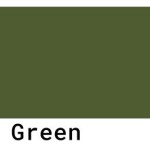Essential Aspects of What Grass Seed Do Sod Farms Use
Sod farms cultivate lush, healthy turf that serves various landscaping needs. Understanding the type of grass seed used by sod farms is crucial for choosing the right sod for your specific requirements. Here are several essential aspects to consider:
1. Climate and Region: Sod farms carefully select grass seeds suitable for the climate and region where they operate. Warm-season grasses, such as Bermuda and Zoysia, thrive in warmer climates, while cool-season grasses, including Kentucky bluegrass and fescue, perform better in cooler regions.
2. Traffic Tolerance: Sod farms use grass seeds with varying degrees of traffic tolerance. For high-traffic areas like sports fields or parks, durable grasses like perennial ryegrass or tall fescue are employed. Conversely, less-trafficked residential lawns may use finer-textured grasses like Kentucky bluegrass or bentgrass.
3. Maintenance Requirements: Different grass varieties have varying maintenance requirements. Some sod farms use low-maintenance grasses that require minimal mowing, watering, and fertilization. On the other hand, certain higher-maintenance grasses offer a more pristine appearance but demand more frequent care.
4. Aesthetic Appeal: Sod farms also consider the aesthetic appeal of the grass varieties they choose. Kentucky bluegrass is renowned for its deep green color and dense growth pattern, while fescue is valued for its drought tolerance and coarse texture. The visual characteristics of the grass seed play a crucial role in determining the overall appearance of the sod.
5. Disease Resistance: Sod farms prioritize grass seeds with good disease resistance. Certain varieties are bred to withstand common lawn diseases, such as leaf spot, dollar spot, and brown patch. Disease-resistant grasses not only maintain a healthier appearance but also reduce the need for chemical treatments.
In addition to these factors, sod farms may also consider the following:
• Environmental Sustainability: Some sod farms opt for drought-tolerant and water-efficient grass varieties to minimize water consumption.
• Soil Conditions: The type of soil and soil pH can influence the grass seed selection.
• Seed Blends: Sod farms often use seed blends to enhance the overall performance and appearance of the sod.
Choosing the right grass seed is essential for successful sod installation and long-term lawn health. By understanding the factors considered by sod farms, you can make an informed decision when selecting the ideal sod for your specific needs.

Benefits And Disadvantages Of Grass Seed Vs Sod

All About Bermuda Grass Sod University Solutions

Shade Grass Seed Fairgreen Sod Farms Ideal For Restricted Sunlight

Sod Vs Seed How To Choose Which Is Right For You

How We Grow Your Grass Debucks Sod Farm In Michigan

Grass Seed Vs Sod Differences You Should Know

There S No Such Thing As St Augustine Grass Seed Sod Solution

Grass Seed For Strathroy Turf Farms Southwestern Ontario Sod

Sun Grass Seed Fairgreen Sod Farms Ideal For Home Lawns

How To Ensure A Successful Grass Seeding The Ultimate Guide








